The title of this article was originally "Courier Mail manipulates reporting of water recycling to demand early election" - JS, 12 mar 08
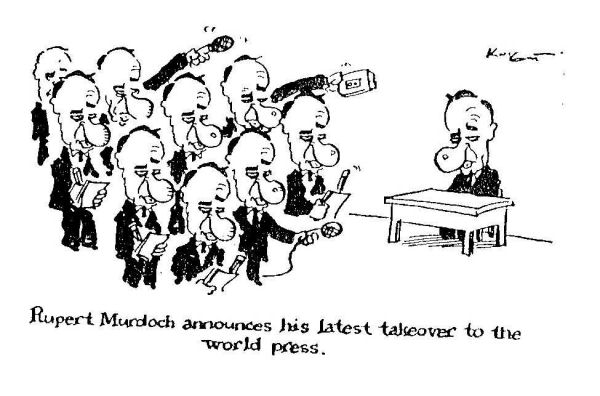
Murdoch cartoon source - http://peoplesgeography.com/2006/11/
Contents: Why the sudden need for an early election in Queensland?, Courier Mail's misreporting of water recycling issue, Even the Australian sides with the 'uninformed agitators' against the Courier Mail, Courier Mail's misreporting of water recycling no aberration, Courier Mail seeks electoral putsch in Queensland, The Australian's attempt to manipulate the NSW Parliament, What can be done?.
The Courier Mail's editorial "Time to put an end to early poll speculation" of 29 December 2008 stepped up its campaign to pressure Queensland1 Premier Anna Bligh into calling an early election date in either February or March against earlier commitments to serve her full term. She made this promise on 20 March this year2. The editorial essentially re-states what was written by assistant editor Craig Johnstone on 4 December in the "Viewpoint" article "Early election".
So, what's changed since 20 March? Why the sudden urgent need for both the Courier Mail and Premier Anna Bligh to suddenly reverse their previous stances against early elections?
As the editorial argued "... the Government's behaviour, particularly in the latter half of the year, showed that its political horizon was growing closer and closer."
Anyone expecting that the Courier Mail was objecting to Anna Bligh's goals, announced earlier this year, to triple the already massive level of Queensland's coal exports by 2030 or that it would demand that she take effective measures to protect Queensland's natural environment, were to be soon disappointed. The editorial continued:
"Moves such as the ban slapped on shale oil mining in the Whitsundays and the scrapping of North Bank were early signs that the Government was finessing its policy stances to put itself into the best position to attract Greens preferences."
If, indeed, that was Premier Bligh's motivation, then one would have at least expected the Courier Mail to concede that that was a good thing in regard to the North Bank project, a self-evidently mad plan by Anna Bligh to extend an ugly concrete pontoon half-way across the busy and scenic Brisbane River to allow massive high-rise apartment blocks above the northern half of the Brisbane River adjacent to the Central Business District,. After many months of public outcry and a total lack of public support from any credible architect or town planning professional, the plans were scrapped late in 2008.
Whilst the editorial writer seemed prepared to grudgingly tolerate those decisions, more recent policy reversals by Bligh went beyond the pale:
"But the decision to indefinitely hold off adding purified recycled water into southeast Queensland's drinking supplies, thereby ensuring the $2.5 billion Western Corridor Recycled Water Scheme would not be used for the purpose for which it was built, gave the game away as far as the Government's thinking was concerned.
"That Ms Bligh would back down to a few uninformed agitators on the fringe of political debate in Queensland showed that the Government was more concerned about the next opinion poll than the next policy challenge."
Craig Johnstone's article also complained of Anna Bligh's "sudden conversion to the environmental well-being of the Mary River Valley". Most probably that example was omitted from the editorial because it would have been judged too difficult to also portray the entire Mary Valley community and other opponents of the Queensland Government's planned environmentally reckless Traveston dam as "uninformed agitators".
In fact, the 'uninformed agitators' opposed to water recycling won the overwhelming support of the Toowoomba Community at a referendum held in September 2006. Initially Toowoomba Mayor Di Thorley attempted to impose water recycling without any community consultation, but agreed to the referendum when put on the spot at a public meeting. After that referendum was defeated, the then Premier Peter Beattie promised to hold a poll throughout all of South East Queensland, in early 2007. He intended that the outcome of this poll be used to over-rule the expressed wishes of the Toowoomba community, but subsequently abandoned the promised poll claiming that the then severe water crisis had tied the Government's hands.
Snow Manners, one of the Courier Mail's 'uninformed agitators', at a public meeting attended by 250 people on Saturday 15 November, put the case against recycling and described the campaign he helped to lead against water recycling in 2006.
Contrary to what Peter Beattie claimed at the time, no other community in the world uses recycled water in the way that it was proposed to be used in Toowoomba. In Singapore, recycled water must be fed into houses through separate pipes and in Britain only the shire of Essex has recycled water, and that is intended to be used only in times of drought3. A document released under Freedom of Information laws revealed that when talking amongst themselves, water recycling proponents referred to Toowoomba as a "living laboratory" contrary to Beattie's assertions.
Mr. Manners also pointed out that water recycling was ready to be introduced by 1996, but the proponents of recycling delayed the introduction, judging that they could only succeed in overcoming community objections during a perceived severe water crisis.
Other 'uninformed agitators', although not specifically targeted on this occasion, included anti-water-fluoridation campaigners Merilyn Haines, Dr. Doug Everingham, former Health Minister in the Whitlam Government and Dr. Andrew Harms, past President of the South Australian Branch of the Australian Dental Association. Both Doug Everingham and Andrew Harms were previously active proponents for fluoridation.
Merilyn Haine's sister suffered inexplicably from dermatitis when she moved to Townsville, a North Queensland city which has fluoridated water and inexplicably recovered whenever she left Townsville for any length of time. Merilyn Haines, who describes herself as normally pro-Labor, will be standing against Premier Anna Bligh as an independent campaigner as a result of Bligh's decision to impose fluoridated water on Queensland.
Many of the Courier Mail's readers may be surprised to learn that the national daily newspaper the Australian also owned by Rupert Murdoch, in fact sided with the 'uninformed agitators', if equivocally. The editorial "Far from Armageddon" cited warnings from two senior Australian National University academics that the Australian had reported in previous days (see below) about the dangers that recycled water posed to public health that the Bligh Government had not taken account of. This, together with the fact that the dams of South East Queensland had filled again meant that there was no longer an urgent need for recycling. Whilst the editorial saw a role for recycled water in industry and did not rule out the drinking of recycled water in future, the editorial concluded "The Bligh Government would be wise to hasten slowly."
This otherwise reasoned and balanced editorial was marred by its support for the environmentally reckless Traveston Dam. Nevertheless, it would appear that even the Australian disagrees, on this occasion, with the Courier Mail's view that Queenslanders have been poorly served by a Government which has too much regard for the views of Queenslanders.
Some of the reporting upon which the Australian's editorial was based was:
"Recycled sewage 'will have bugs', Queensland Government warned"
"(Australian National University emeritus) Professor Troy said the safety of recycled water had not been proved in any long-term epidemiological studies.
"It will not be possible to remove all biologically active waste molecules from the system," Professor Troy said.
"The probability is that something like 8 per cent of these impurities will get through, and that is assuming the system is working properly."
"Professor Troy said residents with allergies would be particularly at risk of infection. 'What's happening here is that the authorities are playing Russian roulette with the health of the population,' he said.
"It is a scandal that former premier Peter Beattie promised the people of southeast Queensland a say in a plebiscite and then backed away from that promise.
...
"Professor Troy said the 'hugely expensive' recycled water project was unnecessary and a waste of public money.
" 'This is all being driven by a technological obsession that big engineering projects offer the only solutions to water shortages,' he said." (the Australian, 29 Oct 08)
"Disease expert warns on recycled sewage"
"ONE of Australia's leading infectious disease experts has claimed technology does not exist to prevent recycled sewage from contaminating the water supply of 2.6 million residents in southeast Queensland.
...
"Professor Collignon said viruses that could contaminate the water supply ranged from bugs that caused gastroenteritis to potentially fatal infections leading to encephalitis and heart disease.
"Test results for hazardous bacteria such as E.coli would not be available to authorities for at least a day, he said. "By the time the results come back, the water is already in the reservoir." (the Australian - 30 Oct 08)
"Health chief out of loop on recycling""
"THE bureaucrat charged with safeguarding the health of Queenslanders was not called on to approve the adding of recycled sewage to the drinking water of the state's southeast.
"The Bligh Government left Queensland Chief Health Officer Jeannette Young out of the approval loop on the Western Corridor Recycled Water Project.
"Instead, the scheme was given a health clearance by the Office of the Water Supply Regulator, an arm of the state Department of Natural Resources and Water.
"The revelation came as Dr Young's department admitted it did not know how much hospital waste would be recycled.
"Queensland Health said yesterday it was now helping to conduct research to find out how much hospital waste would be in the 60 megalitres of treated sewage a day pumped into Brisbane's main storage, the Wivenhoe Dam, from February. ..." (the Australian, 4 Nov 08)
Other stories of concerns about water recycling published in the Australian included: "Queensland Premier Anna Bligh tells water plan critics she will drink recycled sewage", 31 Oct 08; "Support wavers for use of recycled sewage water", 1 Nov 08
None of this reporting reached the pages of the Courier Mail4, even though the issue would have been even more relevant to its readers than to the readership of the Australian. Only on 20 November, when the Queensland Government had decided to defer recycling did it make it to the pages of the Courier Mail in the story "Recycled water plan may be postponed, says John Bradley" by Patrick Lion. Interestingly only two out of the seven readers' comments to that article were in support of recycling. Four opposed it outright, whilst one other said that the question should be put to a referendum.
The Courier Mail's treatment of objections to water recycling is far from an aberration. On virtually every major
controversy in recent years in which powerful vested interests stood to gain in the face of strong community objections regarding costs to ordinary citizens, the environment or democracy, the Courier Mail has come down on the side of the former:
- The Suncorp Stadium, which has scarred the skyline of the inner north of Brisbane and forced locals to endure parking restrictions and be periodically overwhelmed by crowds attending large sporting and entertainment events, was built at the cost of tens of millions of dollars at a time when former Premier Peter Beattie complained that he didn't have sufficient funds to act against tree clearing in outback Queensland.
- The planned cruise ship terminal on Southport's Spit, fortunately defeated by a concerted community campaign
- Road, tunnel and bridge building projects which are criss-crossing Brisbane. These are necessitating the requisition of hundreds of dwellings and destruction of open spaces. They include: the North South Bypass Tunnel, the Hale Street Bridge, the Northern Link, the Airport Link and various other major roads;
- Former Premier Peter Beattie's forced local amalgamations enacted at the behest of the Property Council of Australia against overwhelming opposition from those whose councils were to be forcibly amalgamated;
- The privatisation of Telstra opposed by 70% of the Australian public when the Senate past the legislation in September 2005;
- The Howard Government's "Work Choices" which stripped workers of many of their entitlements and protection from unfair dismissal. This was never put to the electorate in the 2004 election and was roundly rejected in the 2007 election.
The Courier Mail editorial continued:
"After more than a decade of Labor in power, this is not where the Bligh Government should be. Certainly, it is an uncomfortable place from which to forge hard policy decisions. At the start of a year likely to contain some of the toughest economic challenges that governments have had to deal with for decades, Queenslanders need the state in sure, confident hands. During her time as treasurer and infrastructure minister, Ms Bligh cultivated a reputation for putting policy ahead of short-term politics.
...
"But the overall impression is of a tired, timid government feeling its way, not a good look when the state needs firm leadership to steer it through uncertain economic times.
"All of this suggests Queensland will be well served if, when Ms Bligh returns from leave next month, she calls an election for either February or March. With a grim outlook on jobs and investment staring it in the face, the state does not need a government flitting from one decision to the next as it constantly calculates its electoral chances."
However, judging from the well-founded backdown of the "tired, timid (state) government" on the issue of water recycling (if not water fluoridation), Queensland appears to have been far better served by that government, for all of its serious flaws, than it is likely to be if it ends up in what the Courier Mail considers "sure, confident hands."
To add weight to its case for an earlier election Craig Johnstone's earlier article the editorial cited the example of the Rees Labor Government in NSW:
"The idea that governments should always run their full term has been blown out of the water by the performance of the Rees Government in New South Wales."
This opinion appears to derived from the Australian newspaper, which extensively covered and, indeed, stridently attempted to influence the political developments in NSW under Premier Nathan Rees and his predecessor Morris Iemma.
Unlike its reporting of the issue of water recycling, the Australian's coverage of NSW politics was most unbalanced.
In August 2008 NSW Parliament was recalled at a cost of $500,000 because Treasurer Michael Costa and Premier Morris Iemma saw an opportunity to rush through their privatisation legislation, a cause the Australian newspaper had stridently championed since November 2007. However, when the Liberal/National Opposition announced its intention to join with the Greens, Independents and a minority of the Labor caucus in voting against the legislation, Michael Costa failed to put the bill.
Whilst this was not what was expected of the Liberal and National Parties who on most occasions in recent years have supported privatisation, it was in accord with the principles of democracy and accountability. As many as 86% of the NSW public opposed privatisation at the time. Iemma and Costa had undertaken not to privatise before the 2007 elections, privatisation had been roundly rejected by the NSW electors when the Liberal Party had campaigned on the policy in 1999 and the NSW Labor Party Conference in May 2007 voted 702 to 104 against privatisation. In short, the NSW Government had no mandate, by any stretch of the imagination, to privatise.
For the crime of voting in accord with the will of the people of NSW, the state Opposition were damned by the Australian on that day and at every possible opportunity since.
As a consequence of their failed privatisation bid, Iemma and Costa were, unsurprisingly, deposed from their respective ministerial posts by the NSW state Labor Caucus. For the Australian, the failure of the NSW Labor Parliamentary caucus to stand by leaders, which in the Australian's view had exhibited such strength of character for having defied the will of the people of NSW, the Labor Party and the trade union movement, was also unforgivable. This was bizarrely held by the Australian as reason why the NSW Labor Government did not deserve to serve a full term. In the Australian's view only a Government that is truly prepared to ride roughshod overall public opposition is worthy of retaining power.
The treatment of the NSW public by the Australian as well as the past treatment of the Queensland public by the Courier Mail should warn Queenslanders about what to expect if Anna Bligh accedes to its demands to call an early election.
With the election out of the way and the expected deepening of the financial and economic crisis, we can expect the Courier Mail to similarly demand of whatever Government is in office, whether Labor or Coalition, the implementation of its pro-corporate agenda: the resumption of plans to introduce water recycling as well as the construction of the Traveston and other dams, the slashing of state government services and the further raising charges, freezes on public sector recruitment or even outright retrenchments. Above all, we can expect the Courier Mail to push for further privatisation.
In recent years, the Queensland Labor Government has privatised the retail arms of its publicly owned gas and electricity suppliers, the Golden Casket lottery, the Dalrymple Bay coal loader, the State Government Insurance Office (SGIO - now known as SunCorp Brisbane Airport, the Mackay Airport). The Government never obtained any popular mandate for any of these privatisations. The full privatisation of the already partially privatised SGIO was directly against a 1998 election commitment of former Queensland Premier Peter Beattie. On top of that the practice of building ever greater numbers of bridges, roads and tunnels through Public Private Partnerships is effectively no different to privatisation.
Queensland Rail, which has already been split up and corporatised and water infrastructure are two of the most obvious candidates for privatisation.
What the Courier Mail is calling for is effectively an electoral putsch. An early election would make it harder for supporters of minor parties such as the Greens and community grass roots independents to raise their concerns before the wider Queensland. This will make it harder for them to win seats of even to gain significant electoral support. For its part, judging by its coverage of previous elections the Courier Mail will not be making any effort to put such policies before the public.
Of course, this won't prevent the Courier Mail from subsequently claiming that the Government had a mandate to enact these policies, just as it absurdly did in regard to the forced Council amalgamations of 2007 as one example. With the next elections three years away, it would take an extremely determined mass movement to stop these policies from becoming reality.
Expose Courier Mail's blatant manipulation of democratic processes
The first thing to be done is to show up the Courier Mail's push for an early election for what it is -- a blatant attempt to manipulate Queensland's democratic processes to serve what appears to be its own narrow sectional corporate agenda at our expense. We must demand of our elected leaders to not hold early elections at the whim of the Courier Mail, nor for that matter, for their own electoral advantage.
The first thing to be done is to show up the Courier Mail's push for an early election for what it is -- a blatant attempt to manipulate Queensland's democratic processes to serve what appear to be its own narrow sectional corporate agenda at our expense. We must demand of our elected leaders to not hold early elections at the whim of the Courier Mail, nor for that matter, for their own electoral advantage.
One way or another the ability of newspapers such as the Courier Mail, beholden to a single overseas proprietor to manipulate our political processes must be ended.
Laws which strictly limit the number of media outlets that any one individual or corporation can control must be reintroduced and those with excessive ownership of Australian newsmedia such as Rupert Murdoch must be made to divest much of their ownership.
Furthermore, genuine alternatives to newsmedia which only pushes corporate interests must be established. A good start would be to re-establish the ABC as a truly independant broadcaster. As such it should be required to report objectively, to effectively and fearlessly scrutinise our business and political leaders and to report all sides of the debates on matter of public importance such as water recycling, water fluoridation, population growth, immigration, housing unaffordability, the environment, etc. As it is, the ABC differs little from the Murdoch newsmedia on most of these issues.
Government sponsored independent daily newspaper alternatives to the corporate newsmedias could be established along the same lines as an independant ABC.
Community groups or anyone with a different perspective to offer should be given access to the these government-sponsored media or they should be assisted to set up their own.
If this were done, we would stand a much greater chance of being able to elect political representatives who will properly represent us.
Demand that politicians put all their major policies to the electorate
Contact all candidates in your electorate and ask them where they stand on these issues, particularly privatisation. Demand that they either put these policies to their electors during the course of the forthcoming elections or undertake not to enact those policies until they have obtained a mandate through a referendum.
Demand direct democracy
Too many policies, harmful to our interests, have been enacted in recent years, because the public opposition to those policies has not been reflected in the vote in Parliament. Ordinary citizens must have the right to both put forward legislative proposals or oppose legislation emanating from their elected representatives as referendum questions.
Oppose four year Parliamentary terms!
The Courier Mail is correct, even if for the wrong reasons, in its new-found opposition to four year state parliamentary terms. When there are no other checks and balances to prevent our elected politicians doing whatever they like regardless of what they said at election time, even three years is too long. If any proposal to extend the term of the Queensland Parliament is put, it must be voted down.
Stand for Parliament
Either seek pre-selection from a minor party which supports democratic pro-environmental anti-corporate policies or stand as an independent. If another candidate with similar policies stands make sure you recommend that those voting for you give him/her your preferences or even consider standing aside in order to help that candidate.
Support democratic pro-environmental anti-corporate candidates
Actively support any candidate who stands on a democratic pro-environmental anti-corporate platform. One such candidate, is Merilyn Haines, who, as mentioned above, will be standing against Premier Anna Bligh. You can consider distributing leaflets, handing out how-to-vote cards, writing letters to the paper, calling talk-back radio, posting comments to online forums including this site, writing articles and publishing them on the web, including here, or even establishing your own blog.
Whatever profile is gained from such a campaign can only better position the campaigner against the likely anti-democratic agenda that will follow the elections even if the candidates don't succeed in winning office.
See also: "Reclaim Our Democracy: Boycott Murdoch" (after) 6 June 08 in the Spring Hill Voice, the Spring Hill Voice's Media Page (including a promotion of this article), "Media contempt for facts in NSW electricity privatisation debate" of 18 Sep 08.
1. ↑ . Queensland is a State of Australia located in the North East.
2. ↑ . On 20 October she made another commitment, but only not to go to the polls until 2009. The headline of the ABC story was "No early election: Bligh", whilst the headline of the Brisbane News story of 23 October was.
3. ↑ To that brief list should be added Windhoek capital of the arid African nation of Namibia. The Australian article "Disease expert warns on recycled sewage" of 30 Oct 08 reported:
"(Australian National University microbiologist) Professor (Peter) Collignon rejected claims by the Queensland Government that the project was comparable with recycled water schemes overseas.
"Singapore, one of the examples often cited by Queensland, had a "very different" system, he said. Waste water was pumped through a pipeline separate from Singapore's reticulated system - unlike in southeast Queensland - and accounted for less than 1 per cent of the city state's dam capacity.
"Professor Collignon said the Namibian capital of Windhoek, located in a desert, had the only comparable system.
"'Brisbane has many times the rainfall of Windhoek,' he said. 'There's no need for Brisbane to be putting sewage into drinking water. There is nowhere else in the world where a large population is being forced to accept a situation where 10 or 25per cent of their drinking water is recycled sewage.'"
4. ↑ I can't rule out the possibility that there may have been other reports, but I can't definitely recall having noticed them, even though I scan through the Courier Mail looking for such stories almost very day. A google news search with term "recycled water site:news.com.au" (omit quotes) won't show up any other articles from the period 29 Oct-4 Nov either.

 We had an A grade example of the type of parallel universe Australia’s mainstream media has descended into late last week. A completely false story given prominence in the national media by The Australian, which was then picked up by various other Rupert Murdoch papers, but which sadly even made it beyond that – all without a single shred of fact, and all without anybody thinking to check, or even think about, the main line of the story being reported.
We had an A grade example of the type of parallel universe Australia’s mainstream media has descended into late last week. A completely false story given prominence in the national media by The Australian, which was then picked up by various other Rupert Murdoch papers, but which sadly even made it beyond that – all without a single shred of fact, and all without anybody thinking to check, or even think about, the main line of the story being reported.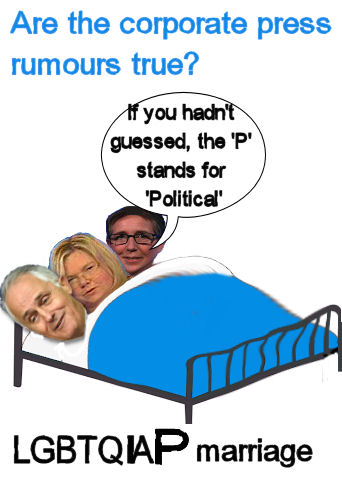












 Why does the mass media support false government narratives that justify our support or participation in deadly wars? Media analyst, Jeremy Salt and Susan Dirgham of Australians for Reconciliation in Syria, explore this perplexing question that shapes our times and our future.
Why does the mass media support false government narratives that justify our support or participation in deadly wars? Media analyst, Jeremy Salt and Susan Dirgham of Australians for Reconciliation in Syria, explore this perplexing question that shapes our times and our future. 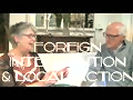 Susan Dirgham of AMRIS talks with Middle East and propaganda scholar, Jeremy Salt, about the history of western interventions in the Middle East and in Syria. She asks why the mainstream press don't tell westerners how Syria is secular and has good women's rights; women got the vote there in 1947. This article is summary plus transcript from the video of Part One of Politics and war in Syria: Susan Dirgham interviews Jeremy Salt. Susan Dirham is convener of Australians for Reconciliation in Syria (AMRIS) and Jeremy Salt is a scholar of Media propaganda and the Middle East
Susan Dirgham of AMRIS talks with Middle East and propaganda scholar, Jeremy Salt, about the history of western interventions in the Middle East and in Syria. She asks why the mainstream press don't tell westerners how Syria is secular and has good women's rights; women got the vote there in 1947. This article is summary plus transcript from the video of Part One of Politics and war in Syria: Susan Dirgham interviews Jeremy Salt. Susan Dirham is convener of Australians for Reconciliation in Syria (AMRIS) and Jeremy Salt is a scholar of Media propaganda and the Middle East
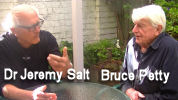 Video and transcript inside. Second in series.
Video and transcript inside. Second in series. 
 The way The Australian writes him up, Tim Flannery, who once wrote so articulately in defense of our land and its ecology and our place in it, now seems reduced to a quasi-apologist for extreme mining technologies. The Australian writes in such an unbalanced way. See also
The way The Australian writes him up, Tim Flannery, who once wrote so articulately in defense of our land and its ecology and our place in it, now seems reduced to a quasi-apologist for extreme mining technologies. The Australian writes in such an unbalanced way. See also  The Age is a constant source of propaganda for population growth in Melbourne. Jake Niall's article today is another flagrant example. Melbournians need strong minds and hearts to fight back against their runaway parliaments and reclaim their natural rights to self-government.
The Age is a constant source of propaganda for population growth in Melbourne. Jake Niall's article today is another flagrant example. Melbournians need strong minds and hearts to fight back against their runaway parliaments and reclaim their natural rights to self-government. 
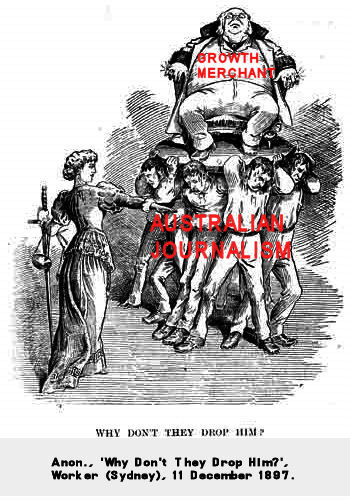 Age Sports-writer Jake Niall promotes the thinnest of arguments for overpopulating Melbourne as if they had real authority, on behalf of The Age, Melbourne's newspaper for the middle classes. The Age owns a massive international property dot com and represents a moneyed power-elite that relies on overpopulating Melbourne against residents' and electors' wishes and all commonsense. Its role seems to be to suppress protest through the massive weight of continuous propaganda, whilst maintaining a thin pretence of counterbalance by publishing mildly dissenting letters to the editor from time to time.
Age Sports-writer Jake Niall promotes the thinnest of arguments for overpopulating Melbourne as if they had real authority, on behalf of The Age, Melbourne's newspaper for the middle classes. The Age owns a massive international property dot com and represents a moneyed power-elite that relies on overpopulating Melbourne against residents' and electors' wishes and all commonsense. Its role seems to be to suppress protest through the massive weight of continuous propaganda, whilst maintaining a thin pretence of counterbalance by publishing mildly dissenting letters to the editor from time to time.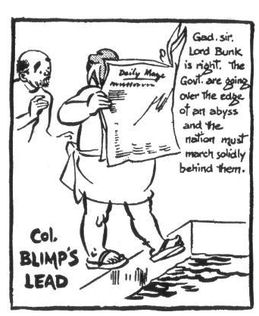 (Illustration: For more on Colonel Blimp see "Notes" [1])
(Illustration: For more on Colonel Blimp see "Notes" [1])

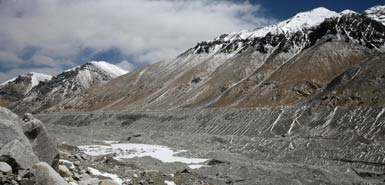
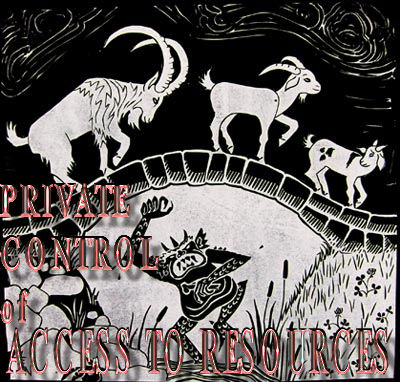 On 18 December 2009, Queenslander's were greeted with yet more bad news by Brisbane's Courier-Mail newspaper in the story
On 18 December 2009, Queenslander's were greeted with yet more bad news by Brisbane's Courier-Mail newspaper in the story 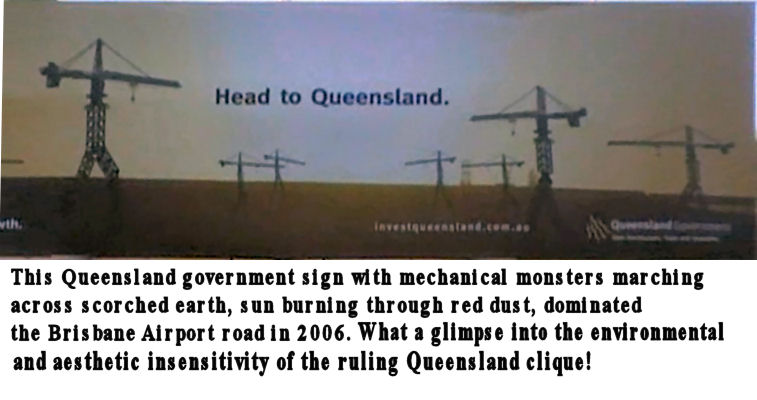
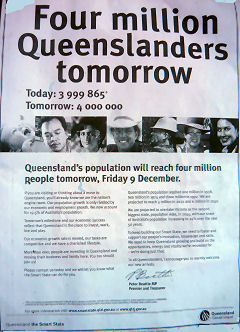







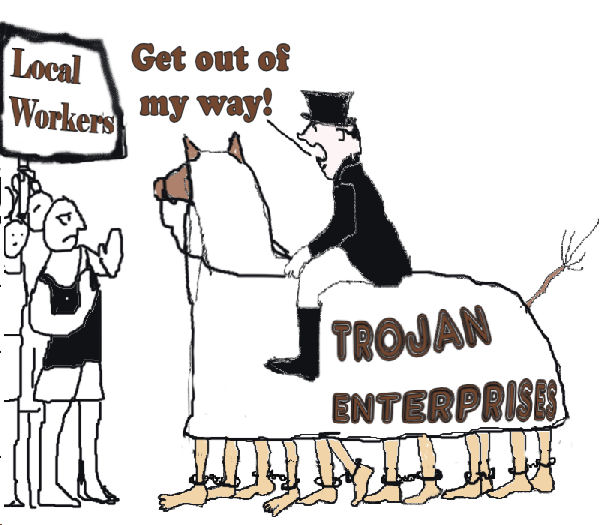
Recent comments